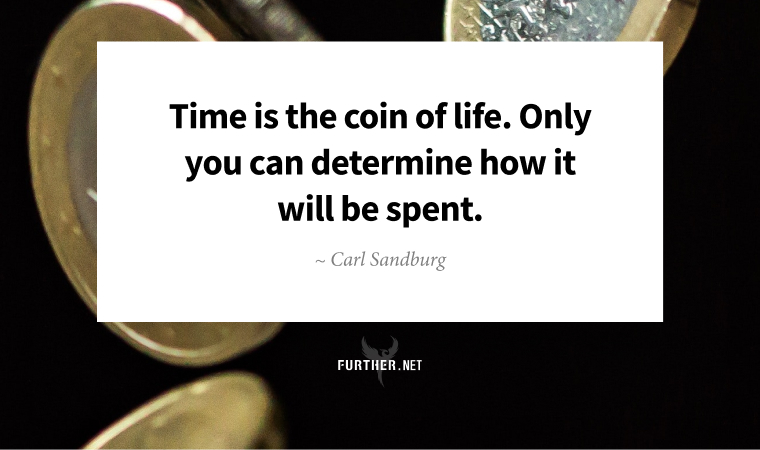
The concept of “midlife crisis” is back in the news, with new research from behavioral scientists stating that middle-aged folks are more prone to physiological and psychological woes.
This isn’t news-news — at Further, we often discuss the U-shaped curve, aka the “happiness curve,” where well-being droops in your 40s before an upswing in your 50s. The sense that time is ticking away as you scramble to find meaning and purpose is central to a midlife malaise (or weirdness, as Brian calls it).
Luckily, not only is there plenty you can do daily to elevate your mood, combat depression and anxiety, and enhance your health, but you likely have plenty of space in your schedule to do it. It’s not about needing more time; it’s about making better choices with the time you have.
Time Bandits
Thanks to smartphones, we have built-in trackers that automatically report how we spend our time. (Curse you, “Screen Time”!) However, research confirms that just because we can audit our activity doesn’t mean we use the data wisely.
But do you know who does? The Bureau of Labor Statistics. They’ve been tracking and analyzing data in the American Time Use Survey for twenty years and have found an incredible statistic:
According to their 2020 findings, the average American has enough leisure time to fit in lots of healthy and life-enriching activities: 5.5 hours per day, to be exact.
Awesome, right? However, we only spend an average of 80 minutes a day doing things that improve our health and well-being, like exercising, socializing, relaxing, and thinking.
Instead, we spend an average of 211 minutes daily watching TV and the rest of our “leisure time” online. Those activities correlate with lower life satisfaction, social isolation, and other adverse health impacts.
Now, you can blame the devices for their captivating qualities, as they can hijack your neurology. Or, you can recognize you’re making a social compromise with your choices, and maybe it’s time to do better.
Take Your Time
There’s another social construct that can up-level your happiness and productivity by serving as the ultimate time hack.
It’s called social economizing, and it means we make active decisions about how we spend our time, and we then save and invest our time where we want.
In our 24/7 wired world, this can feel impossible. And it will be unless you change your relationship with your phone by taking two kinds of actions:
- Omission: Leave the phone out of intimate times (i.e., meals) or places (i.e., the bedroom at night).
- Substitution: Trade passive time on your phone with actions that support your health and well-being, like walking or meditating.
Remember, what you do in life is your choice. Time is precious, and you’re on the clock.
The Time Hack Everyone Should Know (The MIT Press Reader)
